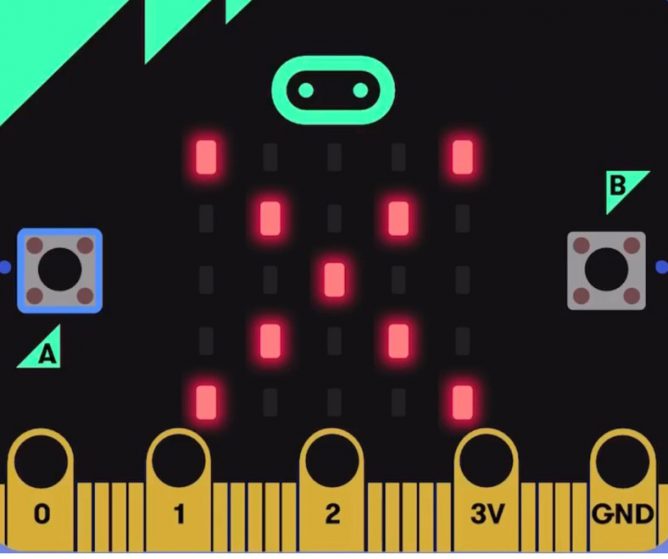A bit of rainy day prep today. Planning using micro:bits for simple Christmas decorations.
Last session we did a time consuming, but worthwhile, microbit guitar project. We’ve use them for decorations before and I thought this might be a simple intro for the new pupils in the class and a simple refresher for last years pupils.
Since I only use microbits now and then I need a wee practise too. I noticed a couple of things using the iOS app and the MakeCode for micro:bit editor.
The app seems to have improved even since June. At that point we started finding it easy to create code and flash the microbits form our iPads. Today I tried the app on my phone and was surprised as to how easy it was to code (simply) a microbit on my phone.
The other is you can now embed makecode, the code or the emulator. This one is a dice and number picker, we made ones like this for maths games last session. Try the buttons and ‘shake’.
Maybe you could always embed code I didn’t notice it before. I am impressed by how the editor has improved over the last few years. The first few times I used micro:bits in class we stitched away from our iPads and used PCs, i can see no good reason for doing so now.




